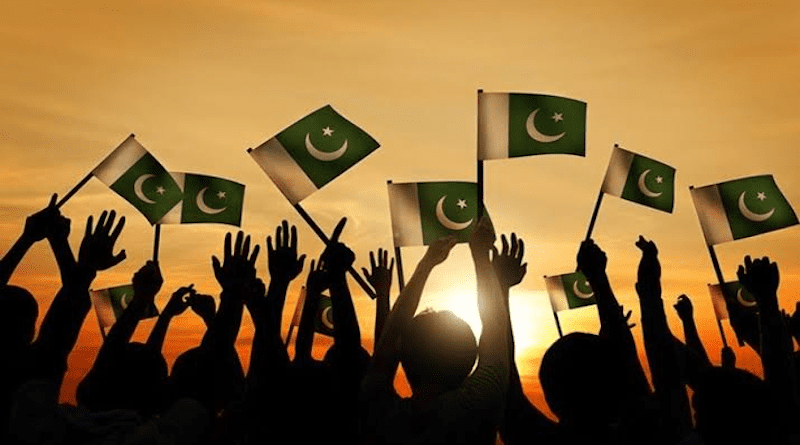Prospects Of Democracy In Pakistan – OpEd
Pakistan’s democratic journey, marked by a series of highs and lows since its inception, holds immense significance for the nation’s future. As Pakistan approaches the year 2024, there is a palpable sense of optimism and anticipation regarding the trajectory of democracy as general elections will be held in the upcoming year. A comprehensive analysis, encompassing recent democratic progress, persistent challenges, the pivotal role of stakeholders, and anticipated developments, is essential for understanding the dynamics of Pakistan’s democratic landscape.
In recent times, Pakistan has experienced substantial progress in bolstering democratic institutions. Electoral reforms have been implemented to ensure more transparent and credible elections. These reforms have contributed to fostering public trust in the democratic process, a critical component for the system’s sustainability. Additionally, efforts to strengthen democratic institutions signify a commitment to building a resilient political framework capable of withstanding political changes. The increased political participation and civic engagement observed in recent years are indicative of a growing understanding and acceptance of democratic values among the populace.
Challenges to Democracy
However, even as Pakistan makes strides in enhancing its democratic institutions, challenges persist. Historical issues like political instability and corruption have been addressed to some extent, but new obstacles have emerged. Divisive politics and polarization threaten to undermine the collaborative spirit necessary for a thriving democracy. External factors, including geopolitical tensions, continue to exert influence on democratic stability. It is imperative for policymakers and citizens alike to remain vigilant and address these challenges proactively to ensure the continued evolution of a robust democratic system.
One of the cornerstones of a successful democracy is the active engagement of civil society. Empowered and active civil society organizations play a pivotal role in holding the government accountable. These organizations act as watchdogs, ensuring transparency, and advocating for the protection of citizens’ rights. Their collaborative efforts with the government contribute significantly to the sustainability of democratic values. As Pakistan progresses into 2024, the role of civil society becomes increasingly critical in shaping the narrative and direction of the country’s democracy.
The increased involvement of the youth in political processes signals a positive shift in the democratic landscape. Youth-led initiatives focusing on democratic principles and political awareness are on the rise in Pakistan. The potential long-term impact of youth involvement in shaping the political landscape cannot be overstated. By engaging with the democratic process, the youth not only contribute fresh perspectives but also ensure the representation of diverse voices. Encouraging and nurturing this active participation will be vital in ensuring the vibrancy and inclusivity of Pakistan’s democracy.
A robust media landscape is fundamental to the health of a thriving democracy. In recent years, media outlets in Pakistan have acted as powerful tools for political awareness and discourse. They have played a crucial role in disseminating information, fostering public debate, and holding those in power accountable. However, challenges such as media censorship and biased reporting pose significant threats to a transparent democratic discourse. Striking a balance between freedom of the press and responsible journalism is crucial for maintaining a healthy democratic environment.
The international community’s role in fostering democracy in Pakistan remains instrumental. Bilateral relations and global partnerships contribute significantly to the promotion of democratic values. International support, both in terms of constructive engagement and critical evaluation, remains crucial for sustaining democratic development. As Pakistan forges ahead into 2024, maintaining and strengthening diplomatic ties will play a pivotal role in ensuring the continued support of the international community in fostering democratic ideals.
The approaching year 2024 brings with it several key developments anticipated to shape the course of Pakistan’s democracy. Upcoming elections will serve as a litmus test for the democratic process, evaluating the effectiveness of recent reforms and the public’s faith in the system. Potential policy changes and legislative initiatives could further define the political landscape. Public sentiment, influenced by factors such as economic stability and governance, will play a vital role in determining the trajectory of democracy in the country.
Conclusion
In conclusion, the prospects of democracy in Pakistan seem promising as the nation navigates through the challenges and opportunities of 2024. The positive democratic progress, the active role of civil society, youth, and media, along with ongoing international support collectively contribute to a brighter democratic future. The resilience displayed by Pakistan in addressing historical challenges and adapting to new realities showcases a commitment to fostering a more robust and sustainable democratic system. While challenges persist, the optimism surrounding the democratic outlook in 2024 suggests that Pakistan is on the path to not only consolidating its democratic gains but also emerging as a beacon of democratic stability in the region. The journey towards a flourishing democracy is an ongoing process, and Pakistan’s commitment to this endeavor remains a testament to its dedication to the principles of peace, stability, and democratic governance.

